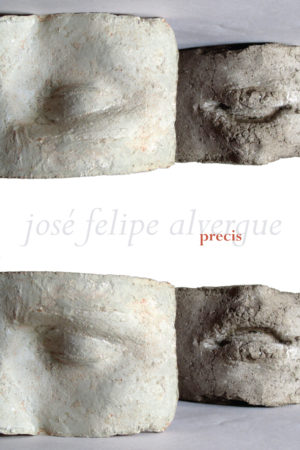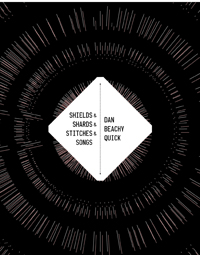Description
With the Saina as his figurative vessel—a ship built in modern times as an exact replica of the swift outriggers designed and sailed by the Chamorro people until banned by their oppressors—Craig Santos Perez deftly navigates the complexities in his bracing exploration of the personal, historical, cultural, and natural elements of his native Guam and its people. As the title—from unincorporated territory [saina]—suggests, by understanding where we are from, we can best determine where we are going. Perez collages primary texts and oral histories of the colonial domination and abuse brought by the Spanish, the Japanese, the United States, and the capitalist entertainment/travel industry, with intimate stories of his childhood experiences on Guam, his family’s immigration to the US, and the evocatively fragmentary myths of his ancestors. Resonant too in Perez’s title, and throughout this work, is this poet’s evocation of the unincorporated and unfathomed elements of our natures, as he seeks the means to access an expansiveness that remains inexpressible in any language. Perez is not afraid to press language beyond the territories of ‘the known’ as he investigates both the anguish and the possibilities that horizon as one attempts to communicate the spoken and unspoken languages of one’s native people, while fully appreciating the suffering inherent in every word he will use that is pronounced in, and thus pronounces, the language of their oppressors.
Winner of the 2011 PEN Center USA Literary Award in Poetry:
In poems of ongoing formal invention, Craig Santos Perez manages not only to dig down through a colonized history to find a root in his native tongue, but in doing so creates a poetry as visionary in its call to political action as it is illuminating in its domestic sensitivity. In from unincorporated territory [saina], Perez translates between multiple forms, cultures, and languages, exploring the “deep geographies” of his native Guam as well as the page in an investigative, activist project that challenges imperialist forces on his homeland and beyond. This volume entails exquisite craft, from fractal wave to oraliterary seascape, entangling authentically prismed perspective, Guahån Chamorro, on interior/exterior planes and places, in poems that row us into futures originating in oceans, swelling us full.
from unincorporated territory [saina] continues Craig Santos Perez’s epic investigation of Chamorro culture, language, and identity. It is by turns ferocious and elegiac, historical and lyrical; it is a book of generations, of sedimentary language, of the ability and power to say “us,” of how a human family might actually be claimed. Filled with tidal spaces, broken by waves, garlanded by islands of brilliant attention and sub-surface groundings, Perez’s poem convenes an oceanic poetics. But if the indigenous canoe that sails through the book is freighted with immigration and emigration, colonialism and national piracies, its real cargo remains cultural authority and the incontestable wonder of origin. Ancestors weep and dance to have generated such creative reclamation as this poem achieves. Perez inherits, inhabits… and a great poem flows…
Aaron Shurin, author of King of Shadows
In from unincorporated territory [saina], Craig Santos Perez—whose very name sounds a poem—sends his reader out on a simultaneously sturdy and yet amorphous canoe, to discover, explore, circle and espy the oldest and most continuous global story: the imperialist, systematic destruction of a culture. Perez takes the water, sky, land, lost legends, ancestral spirits, and survivors of the Pacific Islands into his own tongue, complicated by “torrents of English,” enlivened by Chamoru. This is a great seafarer’s tale of our own lost oceans, lost no more. Reading this book, I was disabused of the notion that “poetry does nothing.”
Gillian Conoley, author of The Plot Genie
from unincorporated territory [saina], Craig Santos Perez’s second book of poems, is a touching and loving tribute to his grandmother, Milan Martinez Portusach Santos Reyes. As a central figure in his poems, “Grandma Santos” comes across as one of the more powerful metaphors and realities of survival in Guam: the sakman, or the long-range voyaging canoe. Perez and Santos thus embark on an oceanic journey from Guam to California, where they now reside, reflecting on a shared past of colonial violence and on an equally fraught and sometimes uncertain present. In the end, Grandma Santos assures Perez that her sakman, their sakman, will always be a vessel through which generations of Chamorros may navigate their respective futures. Saina and Sakman, Perez and Santos. These are the threads which link the poetic forms presented in Craig Santos Perez’s latest collection, which, to be sure, is a pleasure to read.
Dr. Keith L. Camacho, Assistant Professor of Asian American Studies, University of California, Los Angeles
About the Author
Reviews
Excerpt
Craig Santos Perez, a native Chamorro originally from the Pacific Island of Guåhan (Guam), has lived in California since 1995. He is the co-founder of Achiote Press and author of several chapbooks, including constellations gathered along the ecliptic (Shadowbox Press, 2007), all with ocean views (Overhere Press, 2007), and preterrain (Corollary Press, 2008). His first book, from unincorporated territory [hacha] (Tinfish Press in 2008) has been taught in universities across the United States and the Pacific. His poetry, essays, fiction, reviews, and translations have appeared in New American Writing, Pleiades, The Denver Quarterly, The Colorado Review, Sentence, and Rain Taxi, among others.
And, Craig is the recipient of this year’s Poets & Writers California Writers Exchange Award. He will receive an all-expenses-paid trip to New York City to give a public reading. Juan Felipe Herrera was the judge for poetry. His work was chosen from a pool of 712 poetry entries.
Craig received a B.A. in Art History & Literature from the Johnston Center of Integrative Studies at the University of Redlands (2002) and an MFA in Creative Writing from the University of San Francisco (2006). He is currently a Ph.D. candidate in Comparative Ethnic Studies at University of California, Berkeley, where he studies Native American & Native Oceanic Literature and Theory.
Since 2007, Craig has been involved with Famoksaiyan, a Chamorro grassroots activist organization. In 2008, he joined a delegation of Chamorro activists and testified on the negative cultural, environmental, and political impact of U.S. militarization on Guam at the United Nations’ annual meeting of the Fourth Committee (Special Political and Decolonization) in New York City. The delegation also met with representatives from the U.S. Virgin Islands, Argentina, the Philippines, and Indonesia.
You can find Craig online at craigsantosperez.wordpress.com.
Perez is courageously seeking illumination and authority in the very act of inquiry, the unblinking cataloging of a national and international story as vast and studded with honor, mystery, horror, and splendor as the oceanic landscapes upon which it unfolds. Not only Guam’s but Perez’s own particular familial inheritances feature prominently here, and what results is an epic as affecting as it is instructive.
Much like language itself, [saina] doesn’t settle anywhere on a particular form for that poetics. Throughout the book, prose is mixed with thoughtfully delineated sections, as well as places where the visual décor takes on a falling and sometimes splattered appearance. This too pushes the points of the poems: in order for all these known things to shift, so to must the manner in which we speak of them. If culture is going to adapt and move in new directions and if old identities are to be subsumed and new ones created, then so must the way we think of the poetic line. The way Santos Perez mixes forms is rather indicative of what we’re talking about: we’re taking the old and the new and creating a new identity and culture through language.
Perez has a power of vision in this book that is breathtaking to experience. If a native culture has been unincorporated, if Catholicism has grafted itself into its creation histories, if various powers have made of it alternately a disputed occupied territory, a military base, a fetish tourism destination, and most of its native population was forced to leave long ago, if all that is left are pieces of pieces– what can hold together what has no corpus, no body?
His words remind us of where we have been and of things we may have forgotten or learned not to remember, and, in doing so, he pushes us into directions we have not considered for centuries. Even a foreign reader not familiar with Chamorro culture, language, or politics will experience life under the weight of imperialism when reading or studying Perez’s work—the experience of colonialism, and of decolonizing activism.
ginen preterrain
learn ‘body
language’ is more than ‘a litany
of signs’ each sound turns to us
returns to ‘salt-
water’
because names are preparatory
name everything
“saina”
the root
i want to say belief is almost flesh because flesh holds song
each memory of
what our house was in what
is never lost

![from unincorporated territory [saina]<br></br>Craig Santos Perez](https://www.omnidawn.com/wp-content/uploads/2013/07/perez1.jpg)



